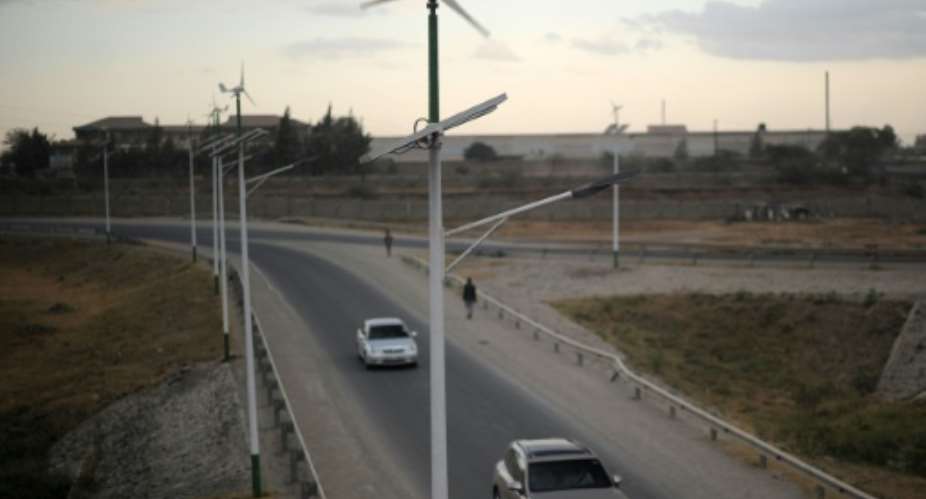Paris (AFP) - Renewable energy sources could supply nearly a quarter of Africa's power needs by 2030, more than four times the current levels, according to a report published Monday by the International Renewable Energy Agency (IRENA).
In 2013 renewables accounted for five percent of the continent's needs but this figure could reach 22 percent over the next 15 years, IRENA said in its "Africa 2030" report, which sets out a "roadmap" for the transition to clean power.
IRENA says Africa's energy production must double and its electricity production triple to keep up with the pace of development and meet demand. The continent's economic growth is picking up speed but energy shortages are a problem.
"Africa holds some of the best renewable energy resources in the world in the form of biomass, geothermal, hydropower, solar and wind," IRENA Director General Adnan Amin said in the report.
Solar energy can be developed across the whole continent, while biomass and hydroelectric offer potential in central and southern areas, the report said.
Wind is primarily of interest to the north, east and south, while the Great Rift Valley in the east has significant geothermal potential.
With the cost of the technology falling, renewables appear to be the most economic option in a growing number of situations, IRENA said, but developing and expanding capacity in power distribution infrastructure will need investments averaging $70 billion a year between now and 2030.
IRENA also stressed the potential of non-traditional biomass. Moving to modern renewable energy cooking methods would reduce the use of inefficient traditional cooking stoves by more than 60 percent, IRENA said.
This would lead to savings of at least $20 billion a year, mainly in reduced healthcare costs by improving the air quality in homes.
IRENA urged governments to create conditions that would help promote the use of renewables through a better regulatory framework and boosting investment.





 SSNIT must be managed without gov’t interference – Austin Gamey
SSNIT must be managed without gov’t interference – Austin Gamey
 Ejisu by-election could go either way between NPP and independent candidate — Gl...
Ejisu by-election could go either way between NPP and independent candidate — Gl...
 We never asked ministers, DCEs to bring NPP apparatchiks for returning officer r...
We never asked ministers, DCEs to bring NPP apparatchiks for returning officer r...
 No one denigrated the commission when you appointed NDC sympathizers during your...
No one denigrated the commission when you appointed NDC sympathizers during your...
 Used cloth dealers protests over delayed Kumasi Central Market project
Used cloth dealers protests over delayed Kumasi Central Market project
 A/R: Kwadaso onion market traders refuse to relocate to new site
A/R: Kwadaso onion market traders refuse to relocate to new site
 Dumsor: Corn mill operators at Kaneshie market face financial crisis
Dumsor: Corn mill operators at Kaneshie market face financial crisis
 Jamestown fishermen seek support over destruction of canoes by Tuesday's heavy d...
Jamestown fishermen seek support over destruction of canoes by Tuesday's heavy d...
 Election 2024: EC to commence voter registration exercise on May 7
Election 2024: EC to commence voter registration exercise on May 7
 Public schools rebranding: We’re switching to blue and white, we’re painting all...
Public schools rebranding: We’re switching to blue and white, we’re painting all...
